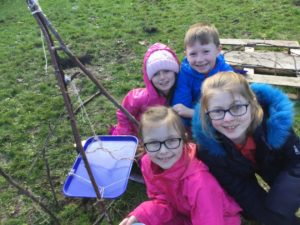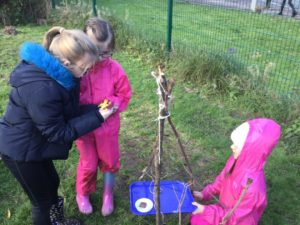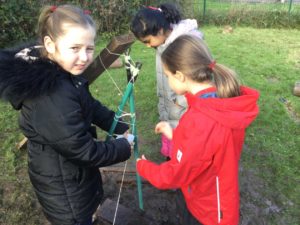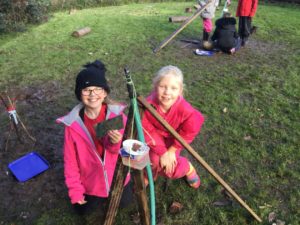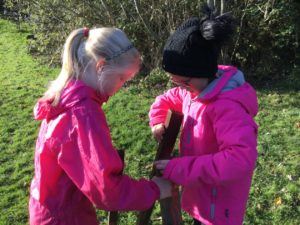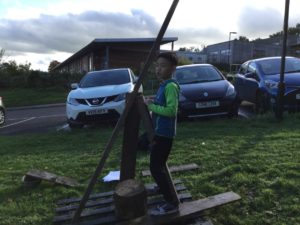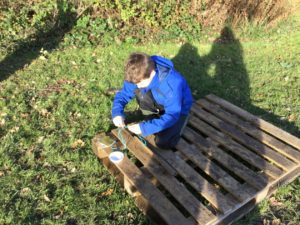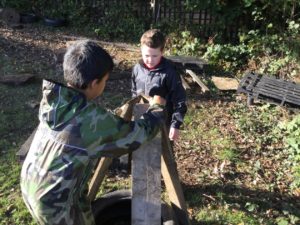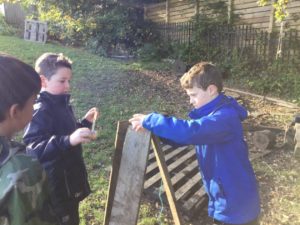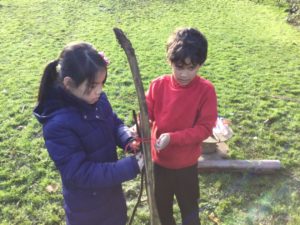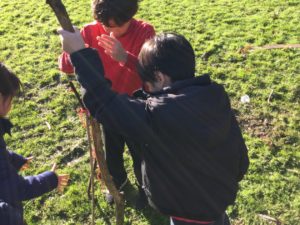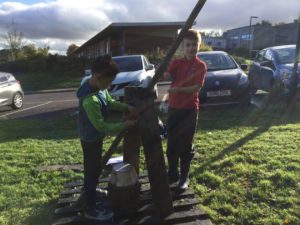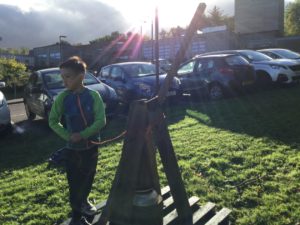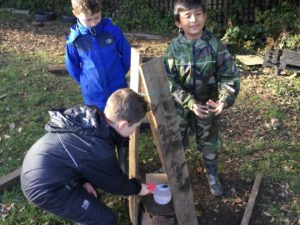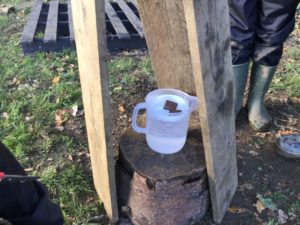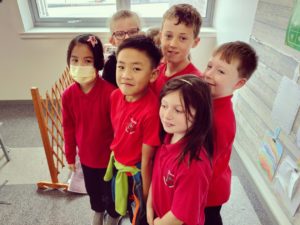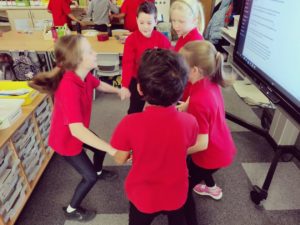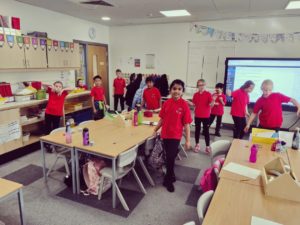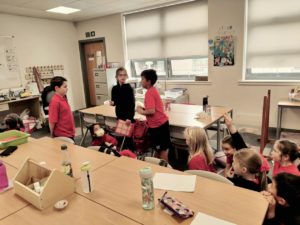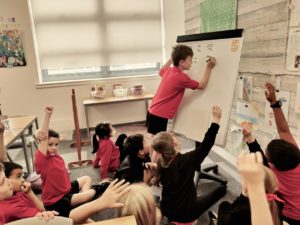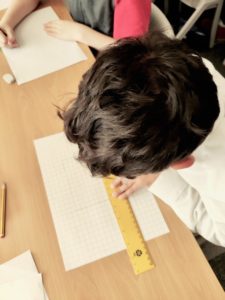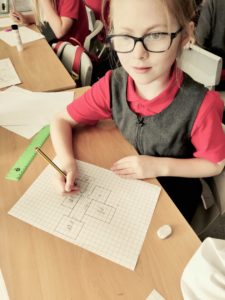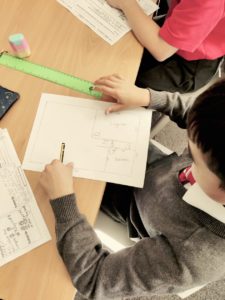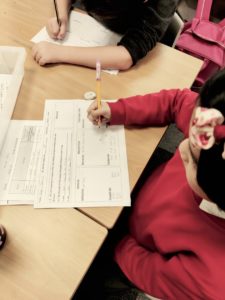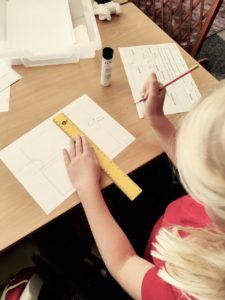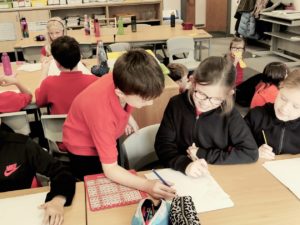Last week in Woodland we made a tripod to melt some chocolate. – Lily-Anne
We collected 3 sticks, a tray and a coffee cup lid. First we got the 3 sticks and made it into a triangular shape and and tied the sticks at the top with string and put the sticks into mud. – Lily
In my group we firstly put a log in the middle and put 3 planks around it and tied it at the top with string. After that we put the chocolate on top of the log and then we tried to use the sunlight’s rays to make the chocolate melt. We did this using mirrors to reflect the sun’s rays onto the chocolate. – Arjun
I found it fun because we got use hot water to try and melt the chocolate with steam. – Olivia-Rose
Most groups managed to melt the chocolate and for those that didn’t, we tried really hard and got to eat it in the end anyway! – Roslyn
We have learnt that if you heat up a solid, it will become a liquid. – Amy
This is because the particles in the solid start to break apart when it is heated, becoming a liquid. – Joshua
